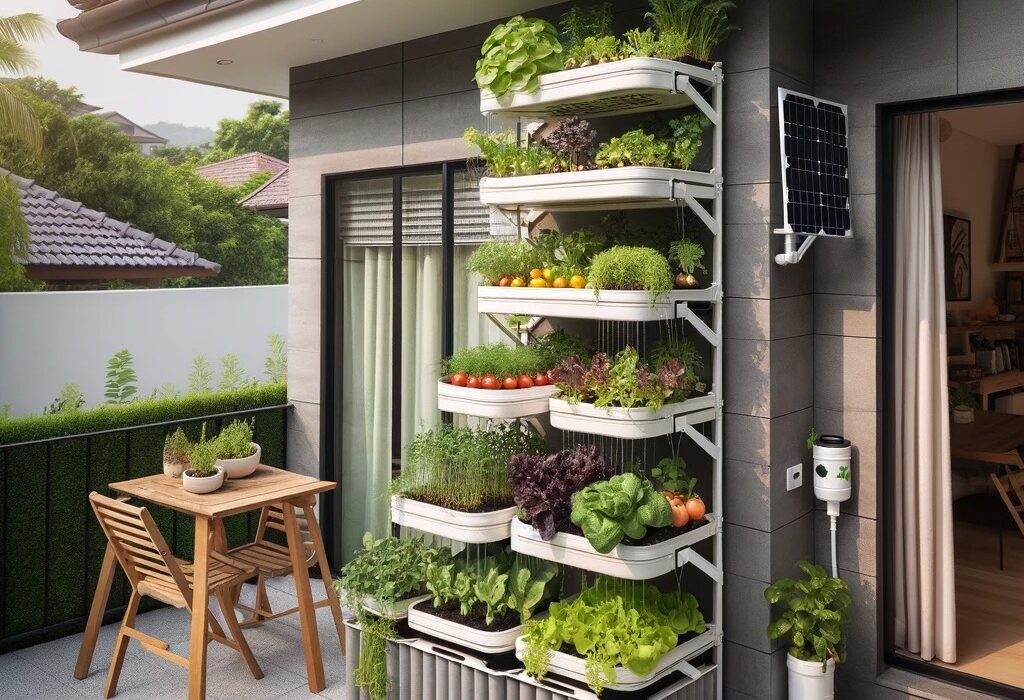Vertical farming is changing the way we think about agriculture . By stacking crops vertically, farming technology maximizes space efficiency while also providing significant environmental and economic benefits. Here are the top ten advantages, which demonstrate why this method is becoming a wonderful solution.
-
Maximised Space Usage
The ability to save space is one of the most significant advantages. In cities where horizontal land is scarce and expensive, This makes use of vertical space, allowing more crops to be grown in a smaller footprint. This is especially useful in heavily crowded cities, where traditional farming is not practical.
- Increased crop yield
It may grow crops year-round, regardless of seasonal variations, resulting in higher yearly yields than regular farming. The regulated atmosphere promotes optimal growing conditions, reducing growth cycles and allowing farmers to harvest more frequently per year.
- Resource Efficiency
Water efficiency is a key feature of farming. These methods use up to 70% less water than open-field farming since water may be recycled within a confined environment. Furthermore, vertical farming frequently use hydroponics or aeroponics, which require substantially less water than soil-based growing methods.
- Lower Transportation Costs and Pollution
It lowers the need for long-distance transportation by positioning farms closer to urban consumers. This not only lowers transportation costs but also minimizes the carbon emissions and pollution associated with transporting products from traditional farms to markets.
- Reduced use of chemicals
Vertical farming conditions can be precisely managed and free of pests and pathogens. As a result, pesticides and herbicides are used less frequently, limiting chemical runoff into the environment and producing healthier, cleaner fruit.
- Climate Resilience
Climate change is a major challenge to traditional farming. Vertical farms, on the other hand, are relatively unaffected by weather, ensuring food production in the face of adverse weather catastrophes such as droughts and floods. This enables vertical farming.
- Energy Efficiency
Modern vertical farms use energy-efficient technologies like artificial LED lighting that mimics sunlight. These are more energy efficient than traditional grow lights and can be fine-tuned to provide the particular light spectrum required for plant growth, resulting in even greater energy savings.
- Encourages local food production
It promotes local food production, minimising the need for imports. This not only benefits local businesses, but it also ensures that customers have access to fresher products, improving food security in cities.
- Minimal impact on ecosystems
Deforestation, soil degradation, and biodiversity loss are all common outcomes of traditional farming. It benefits the environment by reducing the land footprint required for agriculture, which preserves ecosystems and reduces land use pressures.
- Scalability & Versatility
Vertical farms can be created in a number of environments, including abandoned warehouses, skyscrapers, and residential neighborhoods. It’s versatility and scalability make it an appealing alternative for towns trying to include more green solutions and encourage sustainable living.
It is more than just a technique of food production; it is a new strategy that addresses many of modern agriculture’s sustainability issues. With its multiple advantages, Hydroponics is positioned to play a critical role in how cities approach food production, providing a sustainable, efficient, and productive means of meeting the world’s food demands. As technology progresses and more people move to cities, Hydroponics is anticipated to become an important component of urban development initiatives, assisting cities in becoming more self-sufficient while decreasing their environmental impact.
By embracing this, we can move towards a more sustainable and food-secure future, demonstrating that new solutions can benefit both people and the environment.
Contact Green Life Organic Farming today to explore your options and make a positive change for the future.


